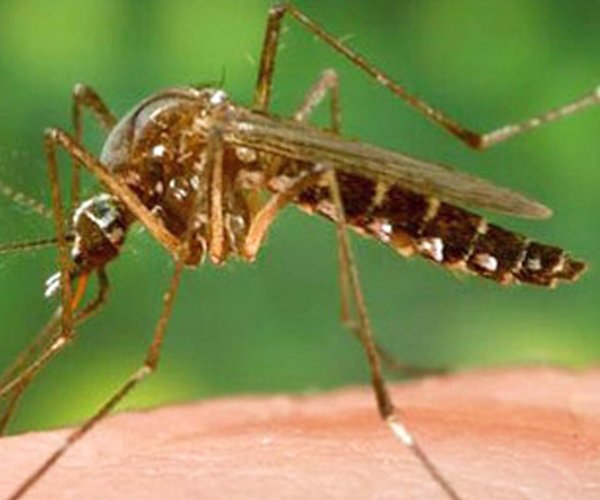California's farmers could be hard hit by a biological opinion issued by the National Marine Fisheries Service on Thursday, which calls for pumping operations in the Central Valley Project and the California State Water Project to be changed.
Five to ten percent of the available annual water, or 300,000 to 500,000 acre feet per year, could be used to increase the long-term survival of Chinook salmon, steelhead, the North American green sturgeon, and killer whales which rely on Chinook salmon for food.
“Today we are one significant step closer to importing foreign produce to feed the United States,” said U.S. Congressman Dennis Cardoza (D-Merced). “We cannot solve the challenges of the Delta ecosystem by continuing to curtail pumping.”
Cardoza went on to call for a more comprehensive study that considers issues of non-native predators, climate change, and pollution as potential causes for declining fish populations.
The reduction in available water will come on top of recent cuts intended to protect Delta smelt and other species.
“Our state’s agricultural community cannot bear the entire brunt of this multifaceted problem,” said U.S. Congressman Jim Costa (D-Fresno). “They are always the first to suffer when environmental opinions are released or implemented. I believe that the Delta does need restoration, but not at the expense of agriculture, and especially my constituents.”
The California Department of Water Resources stated that it would continue to work toward the goal of creating a comprehensive long-term strategy for Delta sustainability that compiles with state and federal environmental laws.
According to Turlock Irrigation District Public Information Division Manager Michelle Reimers, the biological opinion will have no immediate impact on TID operations.
When TID is required to relicense New Don Pedro Dam with the Federal Energy Regulatory Commission in 2016, however, the new agreement could set stricter requirements for fish flows requiring the release of more water or monitoring of water temperatures throughout the Tuolumne River.
“We don’t see anything happening in the near future, but as we relicense that’s something that will be affecting us,” Reimers said.
To contact Alex Cantatore, e-mail acantatore@turlockjournal.com or call 634-9141 ext. 2005.
Five to ten percent of the available annual water, or 300,000 to 500,000 acre feet per year, could be used to increase the long-term survival of Chinook salmon, steelhead, the North American green sturgeon, and killer whales which rely on Chinook salmon for food.
“Today we are one significant step closer to importing foreign produce to feed the United States,” said U.S. Congressman Dennis Cardoza (D-Merced). “We cannot solve the challenges of the Delta ecosystem by continuing to curtail pumping.”
Cardoza went on to call for a more comprehensive study that considers issues of non-native predators, climate change, and pollution as potential causes for declining fish populations.
The reduction in available water will come on top of recent cuts intended to protect Delta smelt and other species.
“Our state’s agricultural community cannot bear the entire brunt of this multifaceted problem,” said U.S. Congressman Jim Costa (D-Fresno). “They are always the first to suffer when environmental opinions are released or implemented. I believe that the Delta does need restoration, but not at the expense of agriculture, and especially my constituents.”
The California Department of Water Resources stated that it would continue to work toward the goal of creating a comprehensive long-term strategy for Delta sustainability that compiles with state and federal environmental laws.
According to Turlock Irrigation District Public Information Division Manager Michelle Reimers, the biological opinion will have no immediate impact on TID operations.
When TID is required to relicense New Don Pedro Dam with the Federal Energy Regulatory Commission in 2016, however, the new agreement could set stricter requirements for fish flows requiring the release of more water or monitoring of water temperatures throughout the Tuolumne River.
“We don’t see anything happening in the near future, but as we relicense that’s something that will be affecting us,” Reimers said.
To contact Alex Cantatore, e-mail acantatore@turlockjournal.com or call 634-9141 ext. 2005.





